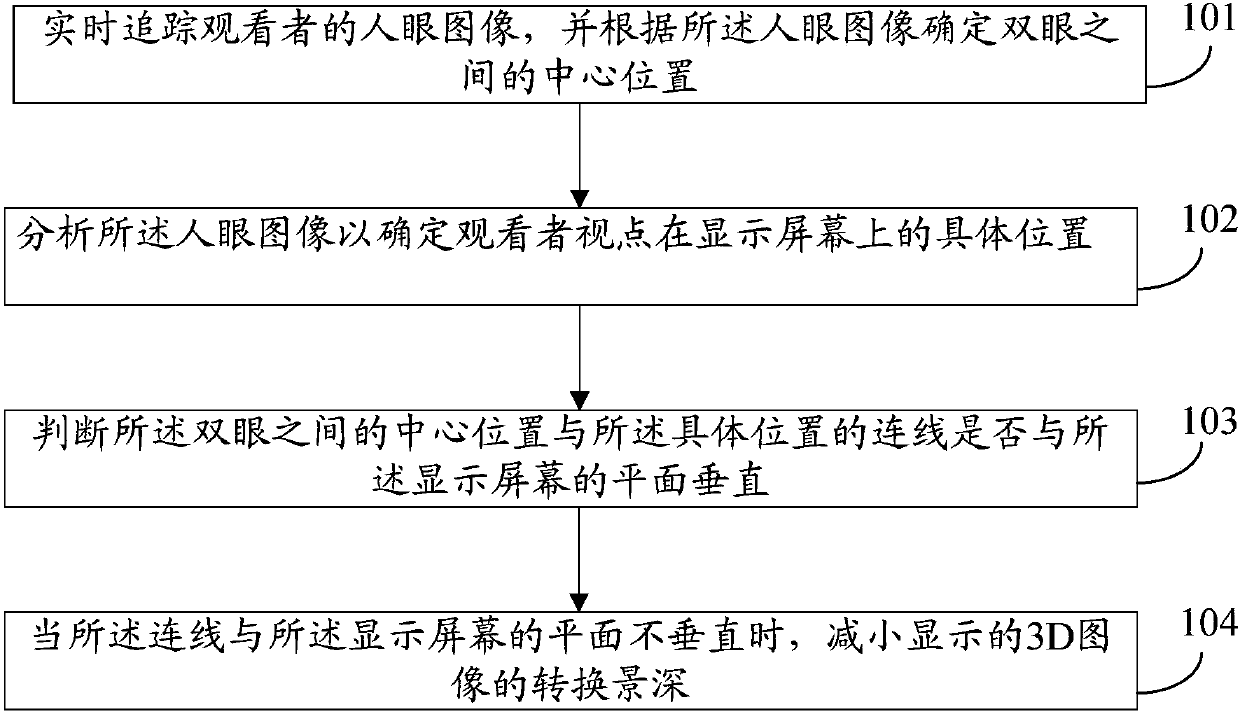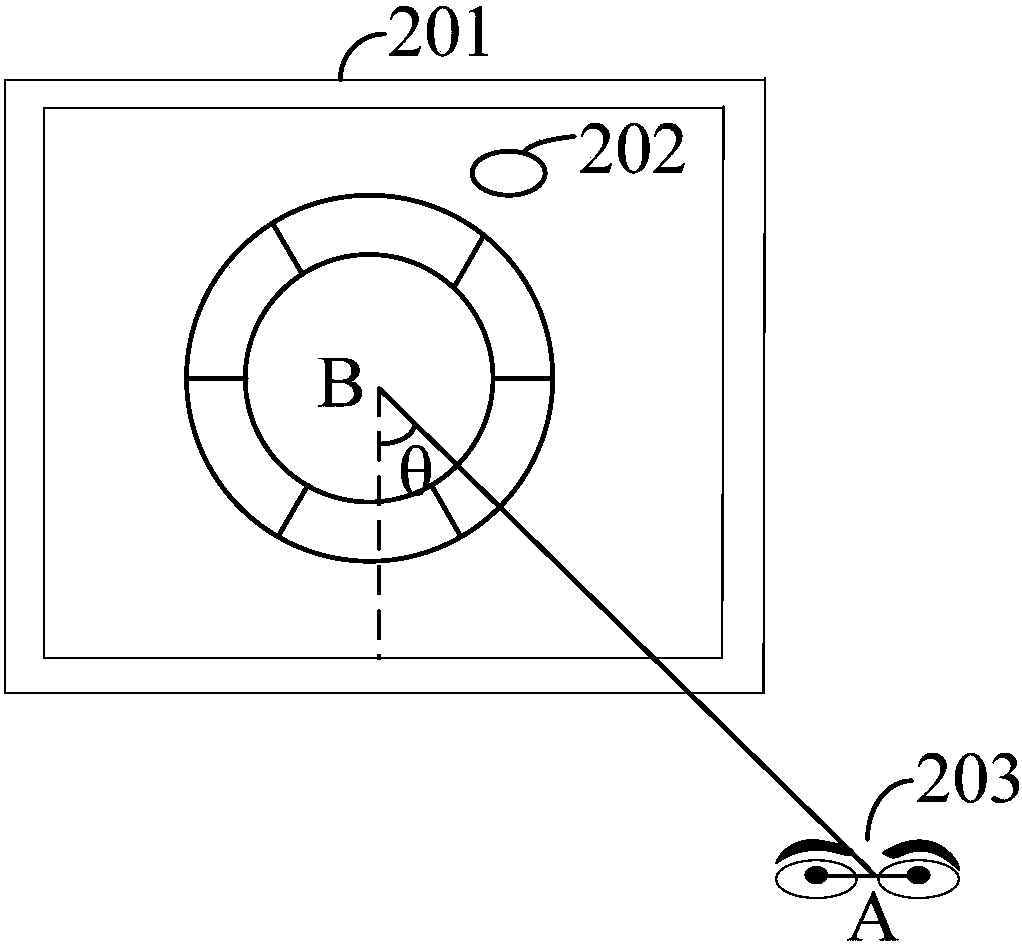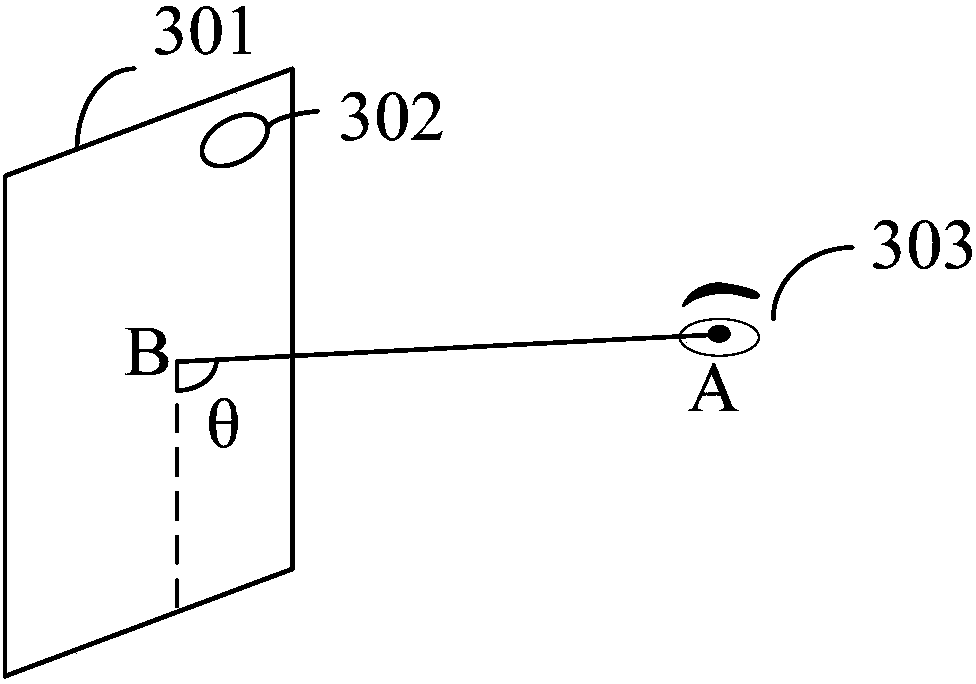Adaptive holographic display method and holographic display device based on viewing angle
A holographic display and viewing angle technology, applied in the field of holographic display, can solve problems such as enjoying clear 3D images, and achieve the effect of reducing the depth of field of 3D conversion and increasing user experience.
- Summary
- Abstract
- Description
- Claims
- Application Information
AI Technical Summary
Problems solved by technology
Method used
Image
Examples
Embodiment approach
[0074] Different from the first embodiment, the holographic display method of this embodiment continues to track the human eye image after reducing the converted depth of field of the displayed 3D image, and determines the center position between the eyes and the viewer's viewpoint on the display screen. When the connection line of the specific position is perpendicular to the plane of the display screen, the converted depth of field of the displayed 3D image is increased, so that the displayed 3D image can restore the original display effect, so that the viewer can watch a clearer and more effective 3D image , to increase user experience.
[0075] In another embodiment, as Figure 6 as shown, Figure 6 It is a schematic flowchart of still another embodiment of the viewing angle-based adaptive holographic display method of the present invention.
[0076] The difference between this embodiment and the previous embodiment is that before performing step 606 of determining the c...
PUM
 Login to View More
Login to View More Abstract
Description
Claims
Application Information
 Login to View More
Login to View More - R&D
- Intellectual Property
- Life Sciences
- Materials
- Tech Scout
- Unparalleled Data Quality
- Higher Quality Content
- 60% Fewer Hallucinations
Browse by: Latest US Patents, China's latest patents, Technical Efficacy Thesaurus, Application Domain, Technology Topic, Popular Technical Reports.
© 2025 PatSnap. All rights reserved.Legal|Privacy policy|Modern Slavery Act Transparency Statement|Sitemap|About US| Contact US: help@patsnap.com



